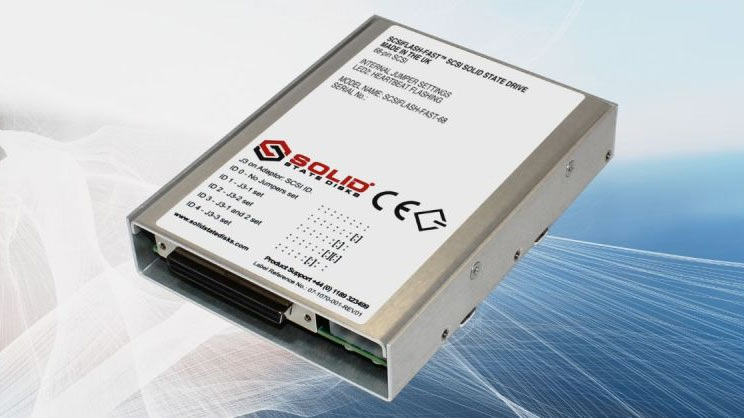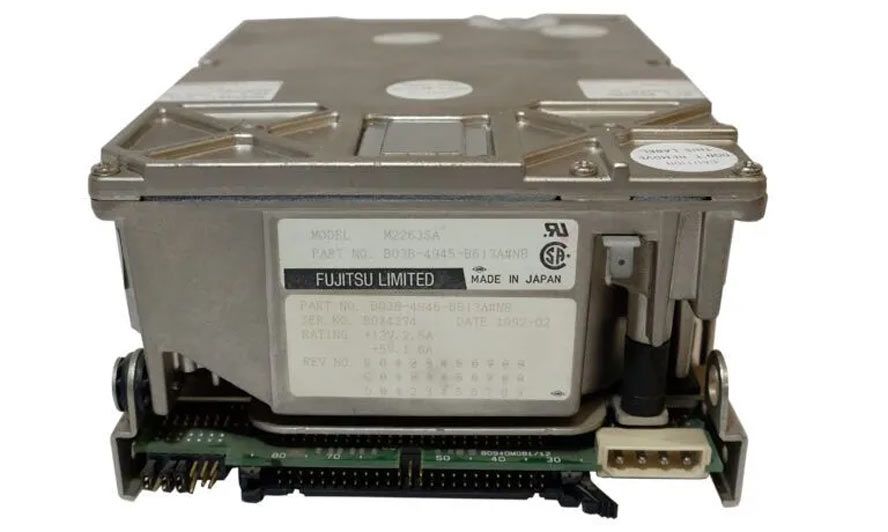Solid State Disks Ltd (SSDL) has released a new storage product for industries and individuals that refuse to let go of their SCSI storage-based systems. The new SCSIFlash-Fast is a 3.5-inch form factor drop-in replacement drive that can take the place of any ancient 68-pin or 80-pin connector SCSI HDD without the system even noticing. There are several touted benefits: friction-free hardware replacement, read/write speeds of up to 80 MB/s, reduced noise, reduced power consumption, a choice of Compact Flash (CF) or M.2 SSD media, and an optional Ethernet port.
Readers who are retro computing aficionados might still run old PC or Mac systems packing SCSI storage devices – just for fun. However, SSDL’s Sales & Marketing Director, James Hilken, points out that there are still systems used in aerospace, defense, manufacturing, medical, telecommunications, and other sectors “that were designed decades ago and were fitted with then state-of-the-art SCSI hard disk drives.” Hilken notes that many SCSI HDDs will be 20 years or older and, as well as being obsolete and irreplaceable like-for-like, these drives are “increasingly failing.”
SCSIFlash-Fast is configurable as a slick swap-in upgrade or replacement for that creaking SCSI drive you still rely on. SSDL says that buyers can configure to order so the newly purchased flash-based drive will “replicate the exact behavior of the SCSI HDD it replaces, meaning no modifications need to be made to the host system.” To this end, SCSIFlash-Fast can be set for SASI, SCSI-1, SCSI-2, or Ultra3 host compatibility, and disk sector sizes of 256, 512, 768, 1,024, 2,048, or 4,096 bytes.
Some other nice touches given to this product includes the depth of other SCSI configuration options that can be adjusted, as well as the device being firmware upgradable via USB. Last but not least, SSDL provides an optional Ethernet port that can be used for tasks like remote backups and reboots.
If you hit the link to the SSDL website you will see that the firm has a cornucopia of other SCSI-connected options such as floppy disks, magneto-opticals, tape drives, and HDDs – for 50, 68, and 80-pin SCSI connectors – with flash memory slots. Most also can be configured with Ethernet ports. Here you can see why the new SCSIFlash-Fast products got their ‘Fast’ suffix: their 80 MB/s performance might sound puny compared to modern storage, but the other SSDL SCSI to flash products we checked in the firm’s catalog are only capable of 10 MB/s.
The SCSIFlash-Fast drives are said to be available immediately with pricing divulged upon application.



